This week is UK Postdoc Appreciation Week and we are celebrating and showcasing the achievements of our postdoctoral researchers and their important contribution to research at BU.
Today’s post is by Dr Rejoice Chipuriro, Post-Doctoral Researcher In Social Care, about her experiences as a postdoctoral researcher…
I trained as a social worker in Zimbabwe before relocating to South Africa where I obtained my MA in Social Development and PhD in Sociology. I joined Bournemouth University in February 2022 as a post-doctoral researcher in the Department of Social Science and Social Work.
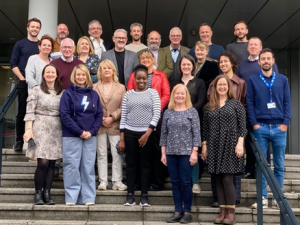
Dr Rejoice Chipuriro with her wider research team
I have worked in community-led interventions and health research programmes in Southern Africa and in the UK. My current research projects are both funded by the National Institute of Health and Social Care and focus on community assets and how these contribute to people’s health and wellbeing (commonhealthassets.uk).
I also work with a local arts-based community organisation which supports mental health for marginalised populations such as asylum seekers, people in recovery from drug and alcohol use.
I was initially drawn to social work as a helping profession and later I ventured into research to learn from and understand the societies that I worked in. When I practised social work, I noticed that beyond individual pathologies lay structural and socio-economic issues that either developed or deprived access to life enhancing choices and opportunities. This led me to studying social development and sociology. I found these inter-disciplinary postgraduate courses helpful for my community work.
I was able to co-design participatory and anti-oppressive interventions with the help of people in the communities as experts by experience. I enjoy supporting people going through life transitions as well as groups and communities striving for a more equitable and just society for all.
What I like about being a post-doctoral researcher
I have travelled widely and met researchers, academics, and communities of practice across the globe, which is an enriching experience. I have presented my research in three continents and collaborated on research across the globe. My network is expansive, and I have accessed resources, intellectual support, and mentorship which has helped me grow professionally. I bring with me this international experience into my work, and this benefits the students and communities I support. When work is challenging, I have empathetic colleagues who hold the space for me and offer encouragement when I need it most.
I have been granted opportunities to teach social work and sociology units as well as to co-facilitate CPD units. I am still mastering teaching skills whilst I support colleagues in lesson planning, delivering virtual and in-person teaching and assessments. I enjoy doing things out of my comfort zone and this aspect of my academic training was at first intimidating but now pleasant. I have settled into my teaching duties well and I like infusing the creative as well as pragmatic aspects of my research into the lectures to enhance student learning experience from different fields of practice.
I was allocated a fellow post doc to be my uni buddy, who helped me settle into my role and the practicalities of living in Bournemouth and we became friends, which alleviated some loneliness away from home. I was assigned mentors to help direct my career progression. From the mentorship I managed to submit a successful portfolio of evidence for my associate fellow Advance HE. I also got mentorship in submitting research bids and got my first grant as a Principal Investigator. These achievements are an indicator of the time and effort invested into professional development for post-docs at BU.
The difficult part of being a post-doc
The writing process for peer reviewed publication can be lonely and arduous. However, BU has put in place support for post-docs to attend writing retreats, meet fellow post-docs, exchange ideas and make friendships. This alleviates loneliness and the retreats are an opportunity to learn from established academics. I have joined research centres such as the Centre for Seldom Heard Voices and the Women’s Academic Network, where I present my work and get feedback, which has also positively impacted my academic publishing.
If you’d like to write a blog post to share your appreciation for our postdoctoral researchers, please contact research@bournemouth.ac.uk. You can also get involved on social media during Postdoc Appreciation Week by using #LovePostdocs and #NPAW2023 on Twitter and Instagram and tagging us @BU_Research or @UK_NPAW.
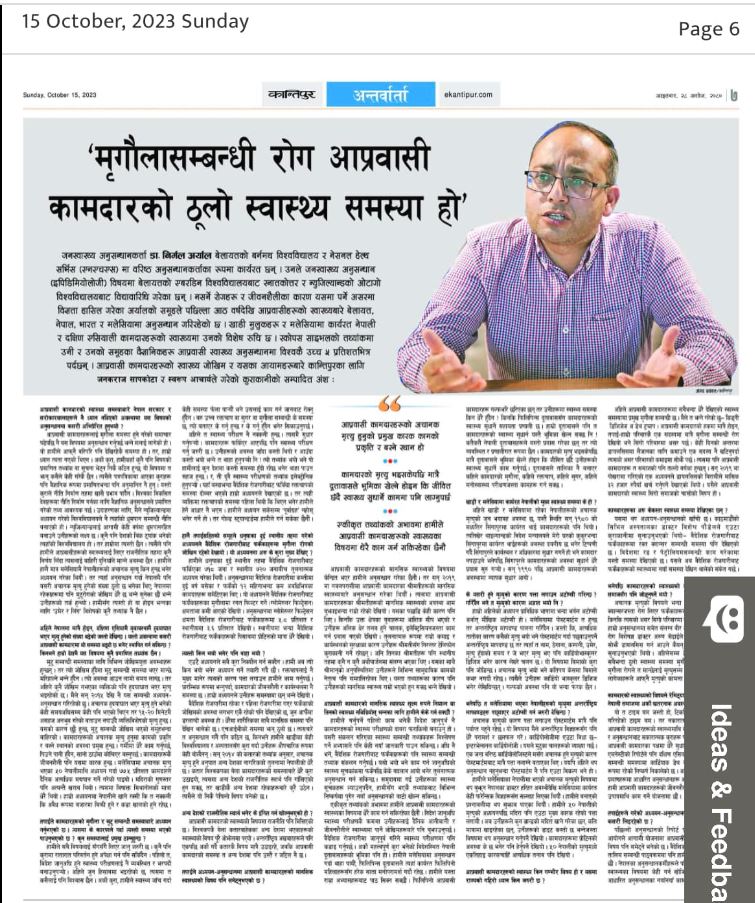 Dr. Nirmal Aryal, who is a part-time researcher in the Department of Nursing Sciences, was interviewed in Nepal by a journalist for Kantipur, the largest Nepali-language newspaper of the country. Nirmal was interviewed after our successful research dissemination events last week in both the capital Kathmandu and in Janakpur (in the south of Nepal). These dissemination programmes reported on a study into the risk of kidney damage in Nepalese migrant workers. This study, led by Bournemouth University’s Dr. Pramod Regmi,was funded by The Colt Foundation in the UK. Dr. Nirmal Aryal is also research associate in the Equality, Diversity and Inclusion Research Unit of Greater Manchester Mental Health NHS Foundation Trust.
Dr. Nirmal Aryal, who is a part-time researcher in the Department of Nursing Sciences, was interviewed in Nepal by a journalist for Kantipur, the largest Nepali-language newspaper of the country. Nirmal was interviewed after our successful research dissemination events last week in both the capital Kathmandu and in Janakpur (in the south of Nepal). These dissemination programmes reported on a study into the risk of kidney damage in Nepalese migrant workers. This study, led by Bournemouth University’s Dr. Pramod Regmi,was funded by The Colt Foundation in the UK. Dr. Nirmal Aryal is also research associate in the Equality, Diversity and Inclusion Research Unit of Greater Manchester Mental Health NHS Foundation Trust.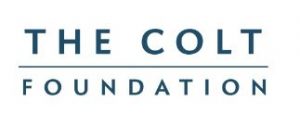
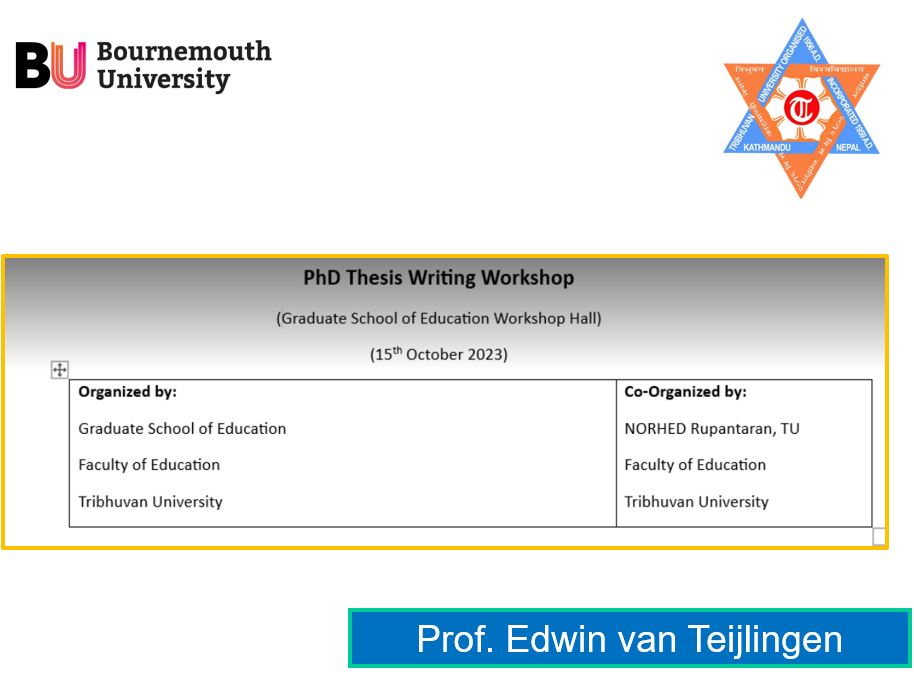

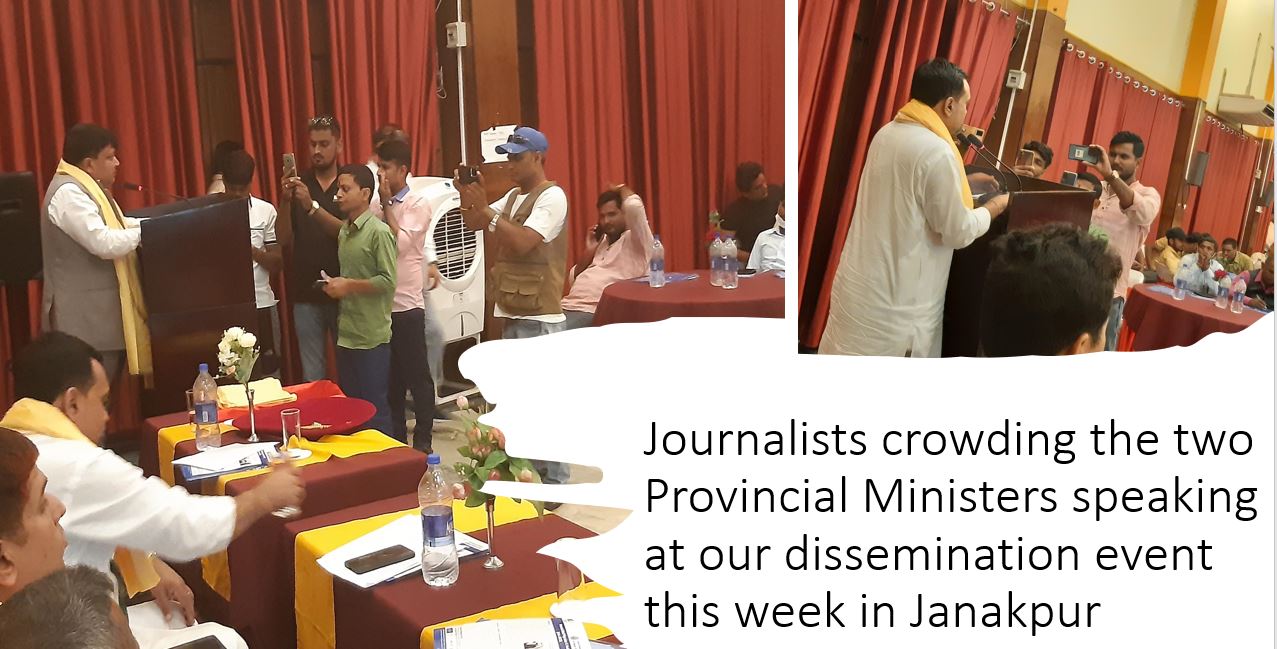
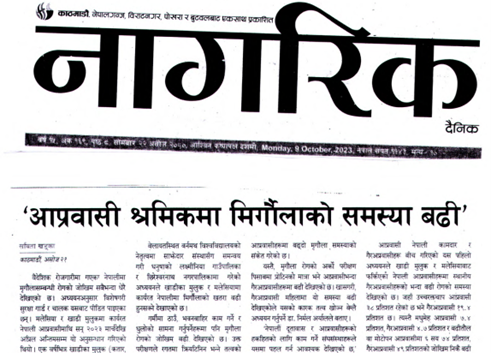

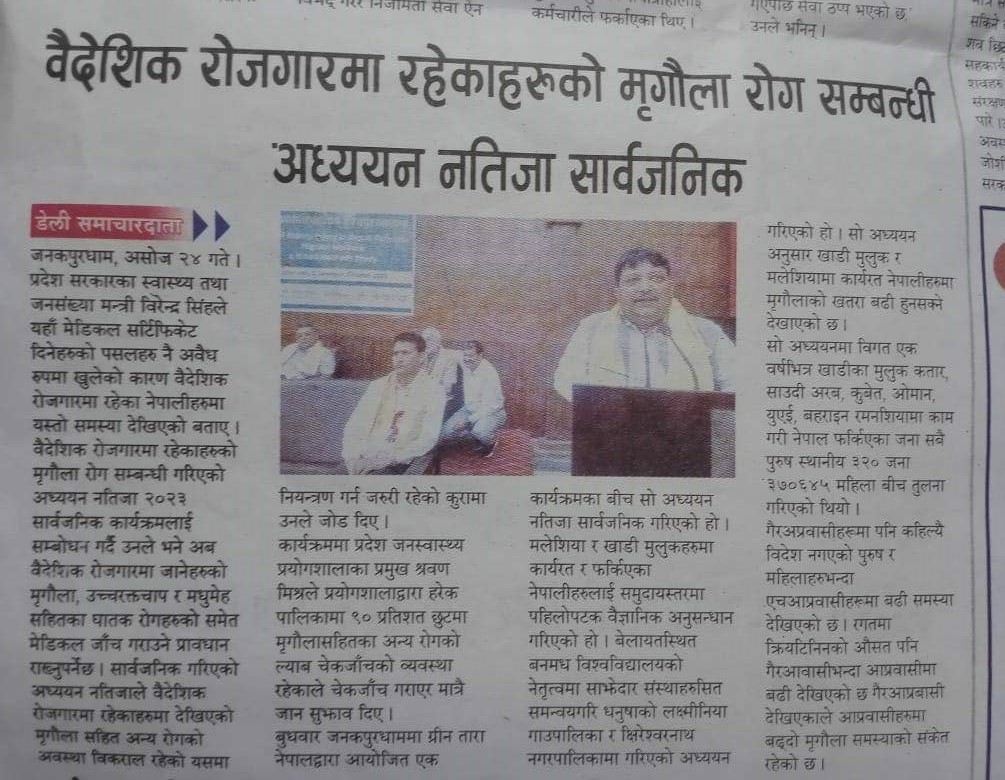
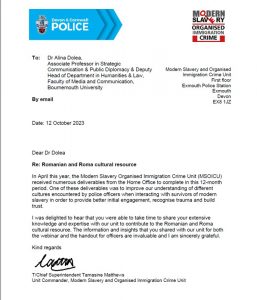 Dr. Alina Dolea, Associate Professor in Strategic Communication and Public Diplomacy and Deputy Head of Department in Humanities and Law, received a letter of thanks from the UK Modern Slavery and Organised Immigration Crime Unit (MSOICU).
Dr. Alina Dolea, Associate Professor in Strategic Communication and Public Diplomacy and Deputy Head of Department in Humanities and Law, received a letter of thanks from the UK Modern Slavery and Organised Immigration Crime Unit (MSOICU).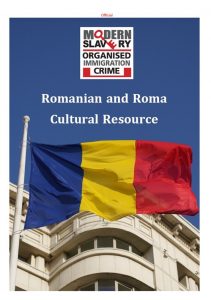
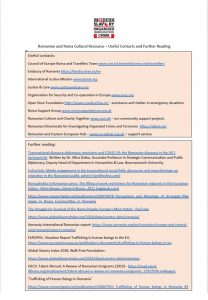
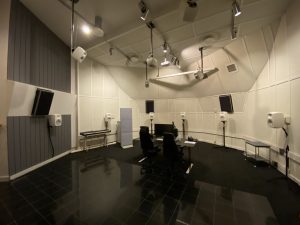
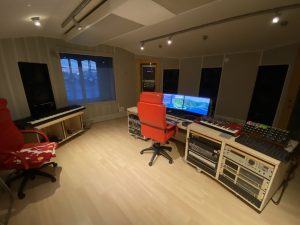
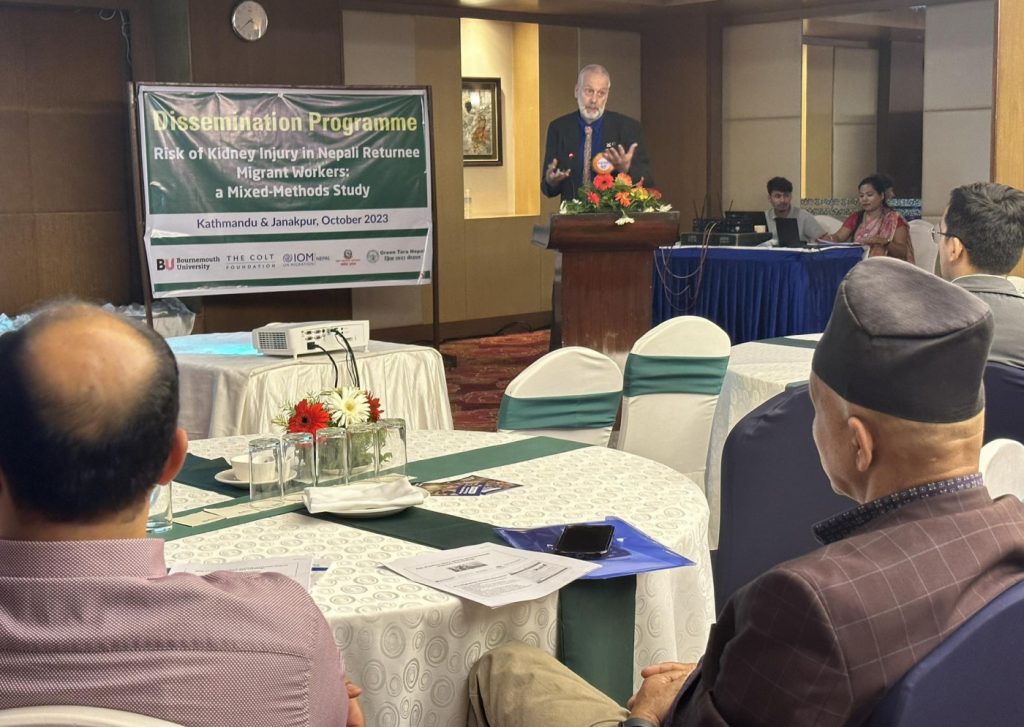
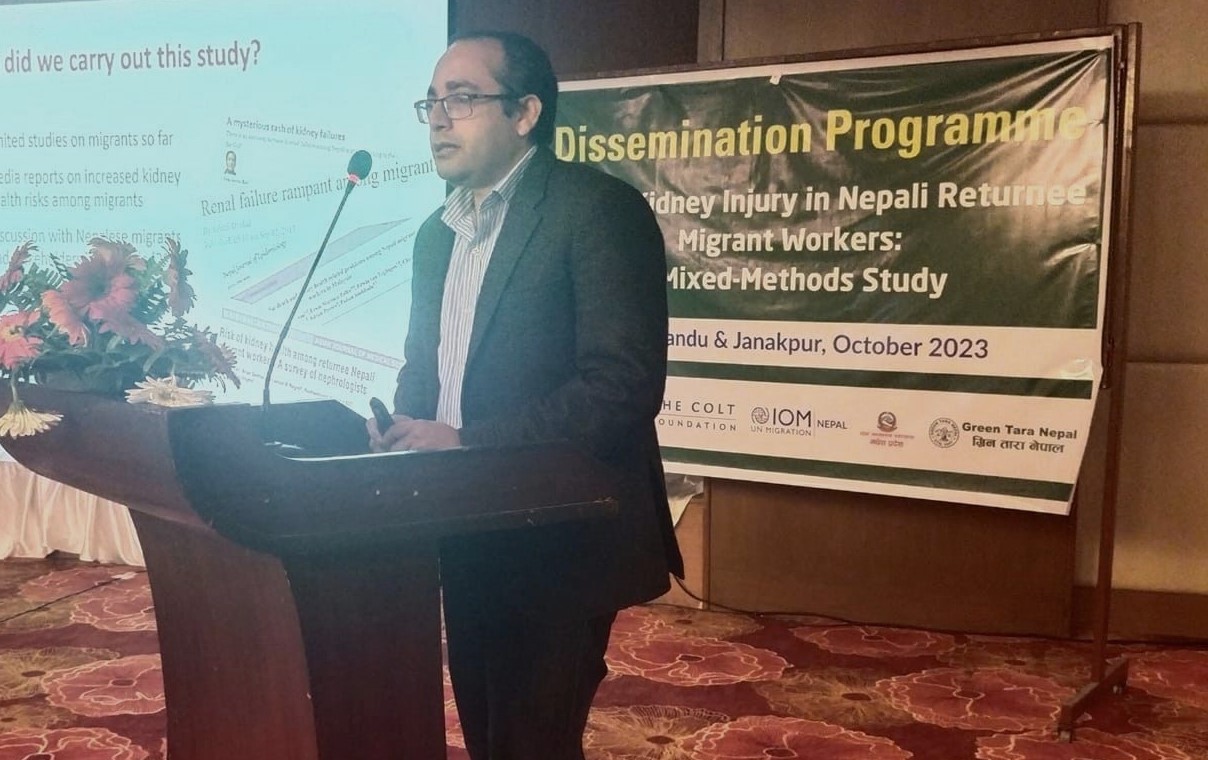


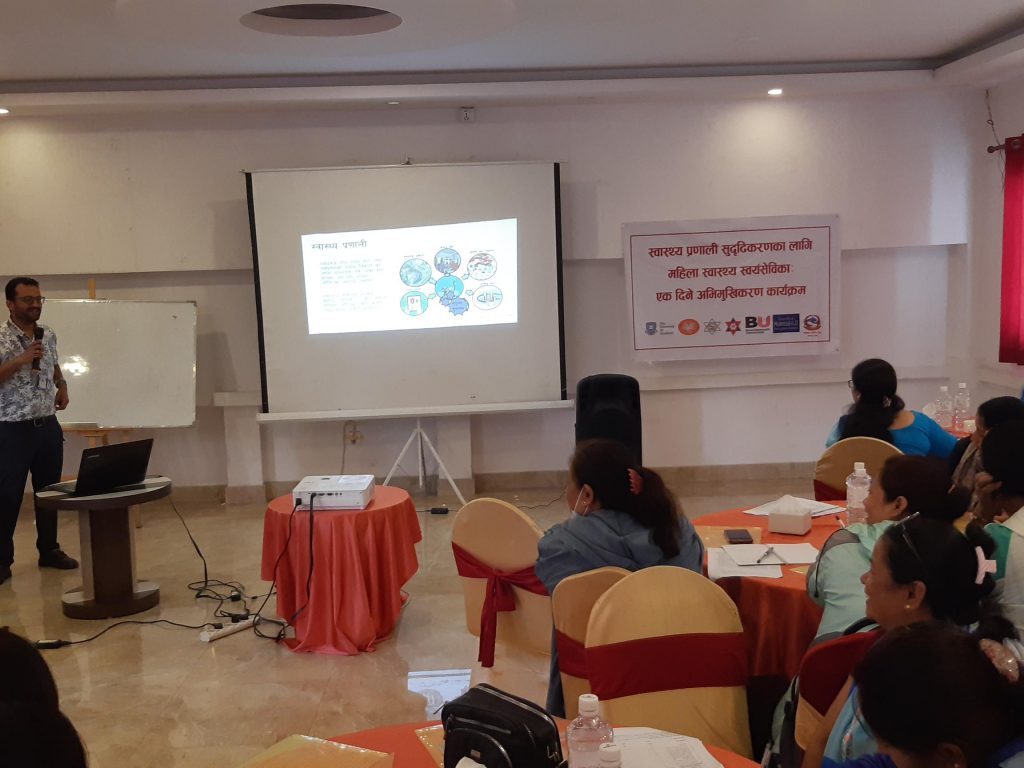
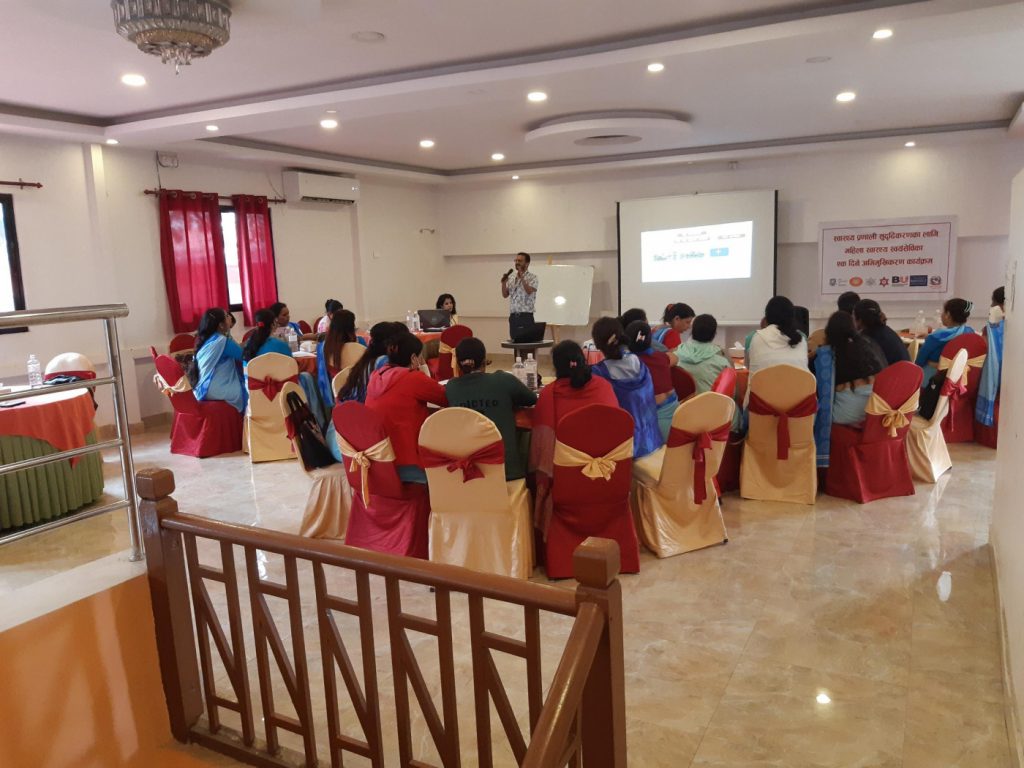

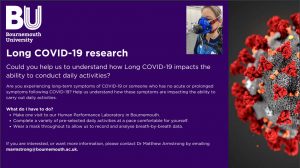
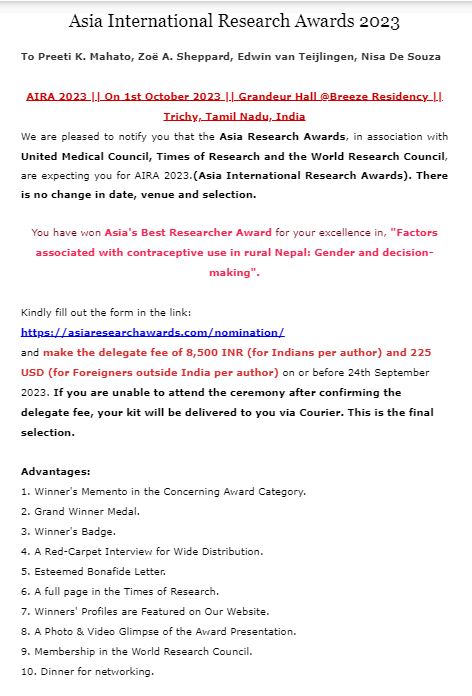

 BU Research Staff Association (RSA) is a forum to promote BU research culture. Research staff from across BU are encouraged to attend to network with others researchers, disseminate their work, discuss career opportunities, hear updates on how BU is implementing the
BU Research Staff Association (RSA) is a forum to promote BU research culture. Research staff from across BU are encouraged to attend to network with others researchers, disseminate their work, discuss career opportunities, hear updates on how BU is implementing the 
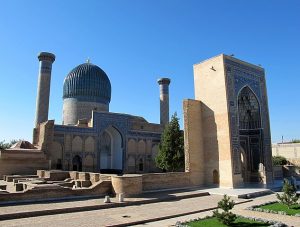
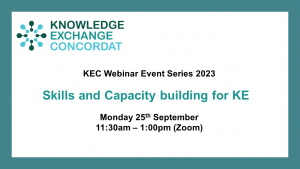











 Upcoming opportunities for PGRs – collaborate externally
Upcoming opportunities for PGRs – collaborate externally BU involved in new MRF dissemination grant
BU involved in new MRF dissemination grant New COVID-19 publication
New COVID-19 publication MSCA Postdoctoral Fellowships 2024
MSCA Postdoctoral Fellowships 2024 Horizon Europe News – December 2023
Horizon Europe News – December 2023